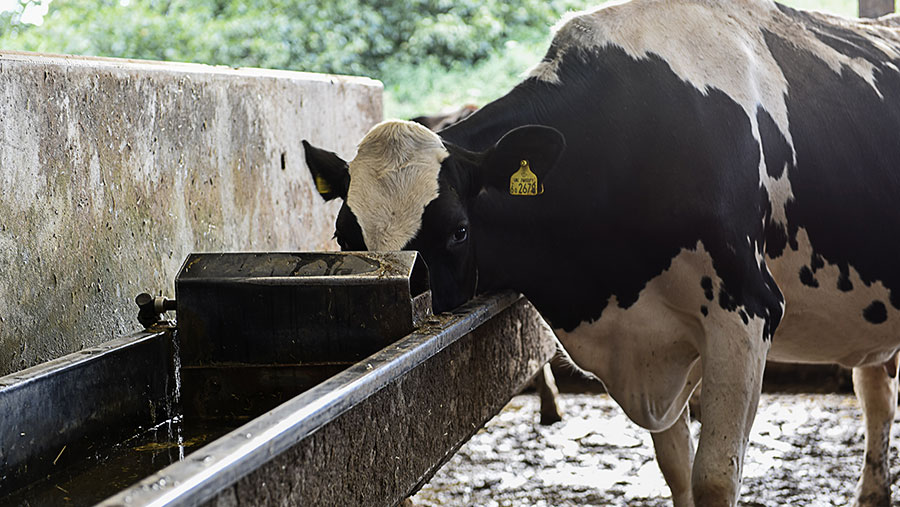New feed additive aims to cut heat stress in high-yielding cows
 Plenty of water troughs with a clean, plentiful supply of water should be provided © Ruth Downing
Plenty of water troughs with a clean, plentiful supply of water should be provided © Ruth Downing A newly developed feed additive can help protect dairy cows from heat stress and reduce performance losses in hot weather.
Heat-stressed cows show fewer signs of oestrus and feed intakes fall, limiting production.
See also: How Hampshire dairy has climbed to top 5 for milk production
Estimates suggest the combination of lost milk, decreased fertility and lower feed efficiency cost £40-£85 a cow in a typical UK year.
To help reduce core body temperatures and limit the effects, Cargill Animal Nutrition has developed an additive that increases hydration at a cellular level.
Its Equaliser CoolCow is a powder that contains an osmolyte and rumen buffer and can be included in the total mixed ration.
The osmolytes draw more fluid from the diet to hydrate cells, while electrolytes and other ingredients support rumen function and maintain feed intake.

Dr Philip Ingram, Cargill ruminant technical manager © Ruth Downing
Heat stress
Cargill’s ruminant technical manager, Philip Ingram, says heat stress risk is measured with a temperature humidity index (THI), which reflects relative humidity and ambient temperature.
High-yielding cows start experiencing heat stress when their THI rises above 68.
An ambient temperature of 22C with a relative humidity of 60% equates to a THI of 68 and will trigger heat stress in dairy cows.
“UK weather data shows mean daily THI was above 68 during July and August in 2016 and 2017 and consistently above 68 for at least three months – from June to August – in 2018,” says Dr Ingram.
“Also, the THI is normally three to seven points higher in the sheds than outdoors, depending on barn design, so housed cows can be more at risk.
“Managing heat stress also requires adequate supplies of clean water and plenty of trough space. One metre of water space for every 10 cows is recommended. Buildings should be well ventilated too, with efficient fans, and feed should be fresh and pushed up regularly to encourage intake,” Dr Ingram adds.
Equaliser CoolCow is added to the lactating cow ration at a rate of 100-150g a head a day from May to the end of September to ensure cover throughout the summer.
It costs 9p a head a day at the recommended rate.
